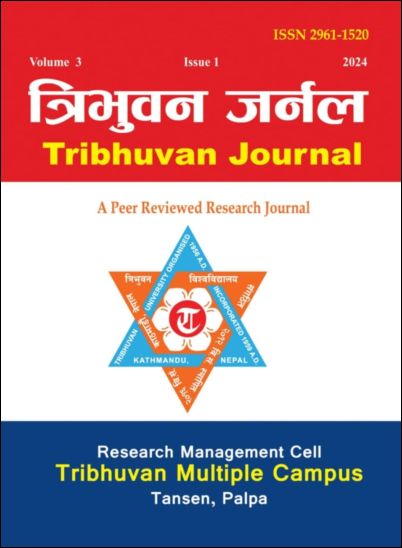Reimagining English Language Teaching in Nepal: Educators' Insights on Paradigm Shifts
DOI:
https://doi.org/10.3126/tribj.v3i1.70803Keywords:
teaching goals, language pedagogy, classroom management, professional development, technology integration, assessment systemAbstract
The field of language teaching has undergone significant transformations, with advancements reshaping traditional methodologies and incorporating innovative techniques.The present study aimed to explore educators’ insights on a paradigm shift in English Language Teaching (ELT). The researcher adopted interpretivism as a philosophical ontology and subjectivism as an epistemology of the research paradigm as the researcher believes on the multiple views of the respondents. Here, the present research was based on the insights and experiences of secondary-level English teachers. The researcher selected three secondary-level English teachers from Rupandehi district using purposive sampling. Here,he prepared an interview guideline and interviewed the sampled teachers for in-depth information.The results reveal that English Language Teaching (ELT) has shifted from content-focused, authoritarian approaches to more student-centered methods, emphasizing skills such as communication, collaboration, and critical thinking. Teachers now act as facilitators, leading to improvements in classroom management, ICT integration, and continuous assessment.Professional development is prioritized, and new concepts such as 21st-century skills, global Englishes, and technological advancements are shaping the modern ELT.This study highlights key trends in traditional and modern ELT, making it useful for educators seeking to adapt their teaching strategies to current best practices. ELT practitioners, who want to enhance their expertise, can benefit from this study.




